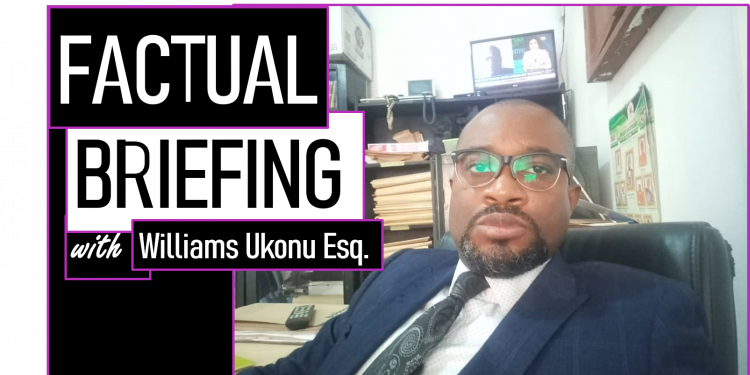It was in 1947, precisely at the midnight of August 15 and exactly 75 years ago this week, that the two countries of India and Pakistan, each became a member of the global committee of nations from the ruins of the British India – a colony of the British empire for 89 years, spanning 1858 to 1947.
The partition of the British India into a new Republic of India and the Islamic Republic of Pakistan in 1947 brought about the end of the reign of the Crown (British Raj) over the people of both countries. The partition was entirely a British idea and voluntarily opted to by the British empire.
Why was the partition? The partitioning was seen as an option to a noble intention – to bring out the protection of the Muslim minority.
1947 was 13 years earlier than 1960, when the British empire eventually walked away from British Nigeria leaving a mess of the notion of a “united country”, or as it is said in some quarters – “one Nigeria”.
When the nuclear neighbours parted ways at the stroke of midnight that separated Aug. 14 from Aug. 15, 1947, the two countries were partitioned along very religious and tribal lines, which were clumsily drawn to separate an expansive Hindu-majority India, and a much smaller Muslim-majority Pakistan in honour of the adherence of the two major religions in then British India.
The major contention for this partition was basically on the bases of protecting the Muslims who were even though in the minority in the British Indian colony, but notwithstanding the colonial masters had a representative quota that guaranteed their protection in government.
Why did the British not partition Nigeria along same very visible lines of differences into Muslim dominated Islamic Republic of North Nigeria (or Arewa perhaps); Christian dominated Republic of South Nigeria, or better still a South Nigerian subdivided into Republic of Biafra and Republic of Oduduwa just as they did in British India?
It was thought that an independent India would not maintain the existing minority protection when the British had departed and hands off the colony. Therefore, to ensure that the Muslim minorities were not dominated by the Hindu majority, the British though it wise to partition the country into two.
This was not withstanding the interrelated nature of the populace whose lives were interwoven in various ways including marriage and residency. The Muslims were already scattered across and around the Indian Hindu areas such as Punjab. So also were some Hindus living in the Muslim dominated neighborhoods such as Bengal. They were forced to endure the inconvenience and hardship of permanent relocation to either Muslim Pakistan or Hindu India.
So, 13 years after, why did the British abandon this partition alternative when it was leaving Nigeria in 1960?
First, let`s recall that 1947 when Britain left India, was between 1914 of Nigerian amalgamation and 1960 when the British eventually thought it was time to let Nigerians to govern themselves.
In 1914 when the British first brought the Southern and Northern protectorates together, these same tribal, cultural and religious differences in British India were deeply entrenched in Nigeria, yet the British for their own administrative convenience chose the path of amalgamation in 1914.
On this excuse of convenience, the British could be excused (albeit reluctantly anyway), but the excuse dissipated when the colonial masters in 1960 gave up the Nigerian colony after much pressure and agitation from Nigerian nationalists. Consequently, some pertinent questions need to be asked.
Why did the British not partition Nigeria along same very visible lines of differences into Muslim dominated Islamic Republic of North Nigeria (or Arewa perhaps); Christian dominated Republic of South Nigeria, or better still a South Nigerian subdivided into Republic of Biafra and Republic of Oduduwa just as they did in British India?
The challenges inherent in the British India due to the homogeneous nature of certain cities occupied by both Muslims and Hindus were clear, yet the British empire overlooked this and went ahead with the partitioning, because they were committed to protecting the Muslim minorities.
That raises yet another question. Was Britain committed extra-ordinarily to the protection of Muslims in her colonies?
In same vein, we can also ask – did Britain create a separate and independent Muslim Pakistan because it wanted to protect minorities for the justice of it, or because it wanted to protect the minorities In India because they were Muslims?
The relevance of the above questions becomes very prominent when you review how Britain chose to hand over Nigeria to the Muslim North under a biased demography and geographical delimitation of the Northern and Southern Nigeria, in a way that highly favoured the Muslim North.
The Northern Nigeria the British left behind in the territorial equation of Nigeria today is almost 70% of the entire Nigerian 923,769km landmass. Why?
Britain could simply have undone the 1914 amalgamation when the administrative convenience and the purpose of the amalgamation was no longer in play as the imperialism was over and the colonial masters were already packed and returning home.
They instead choose to keep the country together, but not united. Rather than return the Northern and Southern divides or unite them in a more equitable boundary delimitation, Britain chose a path that erodes every geographical and numerical advantage available to one in favour the other. Why?
Written by Williams Ukonu Esq, lawyer and rights advocate. He is a Clariform columnist and a regular commentator on national issues. He tweets @WilliamsUkonu and can be reached at [email protected].
DO YOU WANT TO WRITE FOR CLARIFORM? Click here. For a career with us, please send your resume to [email protected]












